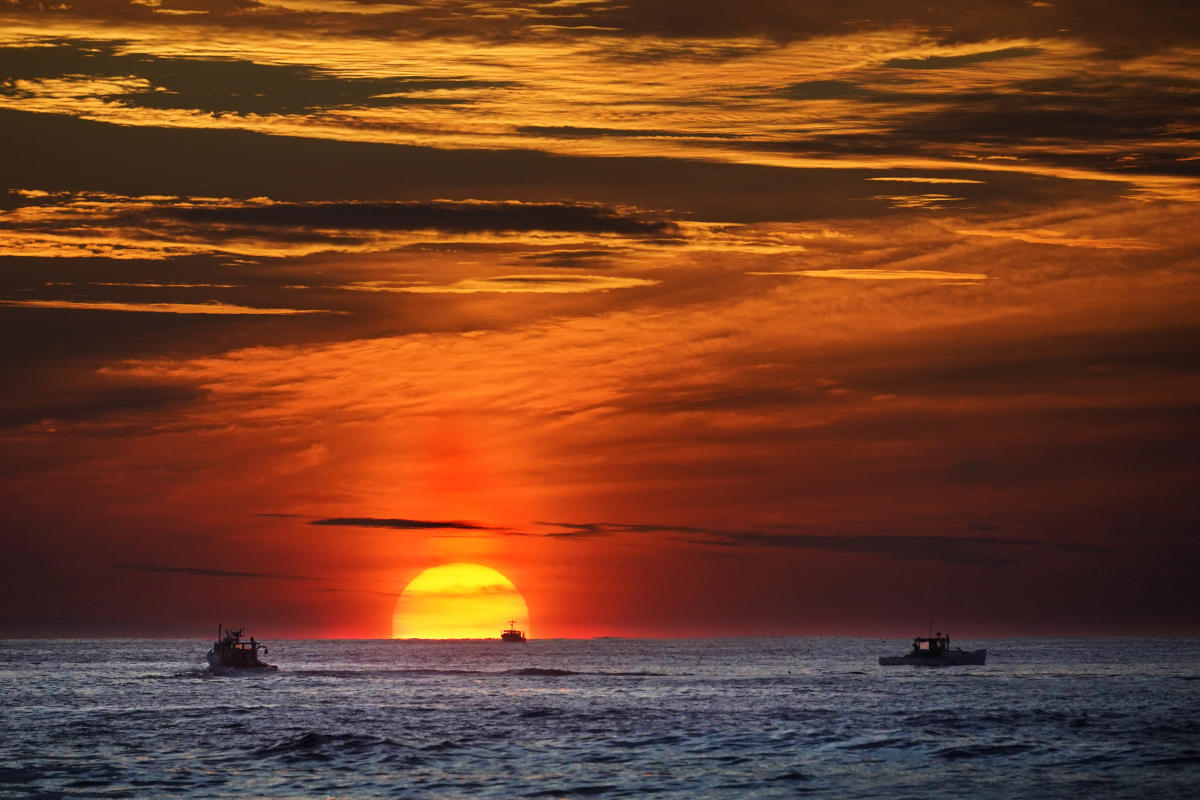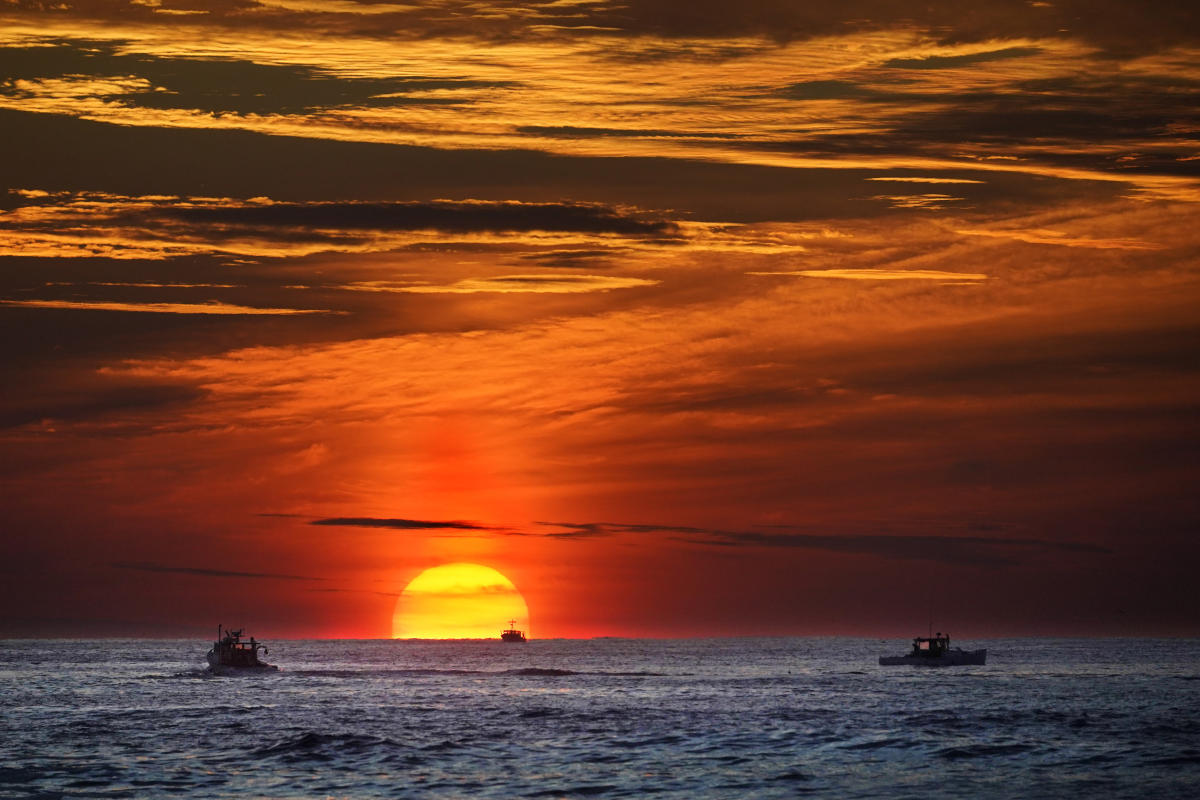
SAN JUAN, Puerto Rico (AP) — High demand for metals ranging from copper to cobalt is pushing the mining industry to explore the world’s deepest oceans, a troubling development for scientists who warn that extracting minerals from critical ecosystems that help regulate climate could cause irreparable damage.
The issue will be in spotlight this week as dozens of scientists, lawyers and government officials gather in Jamaica to debate deep sea mining as part of a two-week conference organized by the International Seabed Authority, an independent body created by a United Nations treaty.
The organization is the global custodian for deep ocean waters that don’t fall within any country’s jurisdiction. It has issued 31 exploration licenses so far, and many worry the world’s first license to go the next step and mine international waters could soon be approved with no regulations currently in place.
Experts say mining could spark a rush to collect minerals that take millions of years to form and unleash noise, light and smothering dust storms deep in the Earth’s oceans.
“It’s one of the most pristine parts of our planet. There’s a lot that stands to be lost,” said Diva Amon, a marine biologist, National Geographic explorer and a scientific adviser to the Benioff Ocean Initiative at the University of California, Santa Barbara.
The first exploration license was issued in the early 2000s, with most of the the current exploratory activity is concentrated in the Clarion-Clipperton Fracture Zone, which covers 1.7 million square miles (4.5 million square kilometers) between Hawaii and Mexico. At least 17 of 31 licenses have been issued for this zone, with exploration occurring at depths ranging from 13,000 to 19,000 feet (4,000 to 6,000 meters).
The push for deep sea mining has grown to the point that the authority is now meeting three times a year instead of two, with a key decision expected as early as July 2023.
Mining companies argue that harvesting minerals from the sea bed instead of land is cheaper and has less of an impact, avoiding a “host of environmental and social issues,” according to UK Seabed Resources, which partnered with Lockheed Martin Corp. to explore the Clarion-Clipperton zone under two contracts.
“We will not have collapsed tailings dams, destruction of cultural sites, clearing of rainforest, child artisanal miners, to name a few recent ones,” UK Seabed Resources said in a statement, referring to some of the impacts from mining on land.
The International Seabed Authority issues licenses to state-owned businesses and countries that subscribe to the U.N. Convention on the Law of the Sea and agree to sponsor private companies that seek to explore international waters for copper, nickel, cobalt, iron, manganese and other minerals. Notably, the U.S. does not subscribe to the law.
The International Energy Agency has estimated a sixfold increase in demand for minerals by 2050 given that electric vehicles and renewable generation are so dependent on them, according to a Fitch Ratings report issued in early October.
“Emissions intensity of cobalt, aluminum and nickel mining and processing is high, so skyrocketing demand may result in rising net carbon footprints,” it stated.
Nauru, a tiny island northeast of Australia, is leading the push to allow for actual mining, arguing that it’s at high risk of climate change and seeks to financially benefit from the mining of metals sought in part for green technology like electric car batteries.
The push has worried countries ranging from Germany to Costa Rica that are seeking to strengthen proposed regulations in the next two weeks.
“We are still very concerned about the consequences,” said Elza Moreira Marcelino de Castro, Brazil’s representative at the conference that began Monday.
French President Emmanuel Macron said earlier this year that he supports a ban on deep sea mining. Several major companies have pledged not to use metals extracted from the deep sea and nations including Germany, New Zealand, Fiji and Samoa have called for a moratorium until more is known about its potential impact, a move cheered by scientists and legal experts.
“You can’t regulate what you don’t understand,” said Duncan Currie, an international and environmental lawyer and legal adviser to the Deep Sea Conservation Coalition, a Netherlands-based alliance of environmental groups.
Less than 1% of the world’s deep ocean waters have been explored, an endeavor that experts say is expensive, technical and time-consuming.
It’s known that the ocean stores more carbon than the Earth’s atmosphere, plants and soil, and scientists are still finding new species during rare exploration trips, with sample studies taking months or even years, Amon said. Among the discoveries is a ghost octopus nicknamed “Casper.”
“We do not understand what lives there, how they live there, the global function that this ecosystem plays, and what we stand to lose by irreversibly impacting it,” she said, adding that life in the deep sea is incredibly slow, with minerals growing one to 10 millimeters every million years. “That means that it is highly vulnerable to disturbance and is extremely slow to recover.”
The Deep Ocean Stewardship Initiative, a global network, says that some experts believe it could take anywhere from six to more than 20 years to collect enough data needed to protect the marine environment from deep sea mining.
Other concerns over deep sea mining include how revenue would be distributed and how companies seeking sponsorship would be reviewed and their activities regulated.
Pradeep Singh, a fellow at the Institute for Advance Sustainability Studies in Potsdam, Germany, said there are growing concerns over potential “sponsorships of convenience” in which private companies might shop for a country based on its tax exemptions, potential lax environmental laws and other factors.
“Quite a number of states are starting to raise an eyebrow about these relationships happening behind the scenes,” he said.
Singh also noted that he and others are concerned that the International Seabed Authority would earn a portion of revenues if actual mining were to start given that the agency awards licenses: “It’s a big conflict of interest.”
The authority did not return a message seeking comment.
Michael Lodge, secretary general of the International Seabed Authority, said during his opening remarks at the conference that the agency wants to ensure protection of the marine environment as member countries work on draft regulations.
During a meeting earlier this year, he noted that the authority widened a protected area to 1.97 million square kilometers in a vast region for which a majority of exploration licenses have been awarded.
Environmental management plans for other areas under exploration are still being developed.
______
Associated Press climate and environmental coverage receives support from several private foundations. See more about AP’s climate initiative here. The AP is solely responsible for all content.




